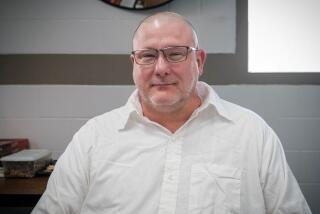Battling Big Tobacco Earns Lawyers Big Fees
- Share via
One of the more incendiary elements of the giant tobacco truce was purposely left out of the agreement. The accord says nothing about the fees to be paid to anti-tobacco lawyers, which are sure to smash all records.
Eager to get Congress and the public behind the deal, negotiators figured the less said about attorney fees the better. To deflect concern, they promised that the lawyers’ cut would not come from the $368.5-billion settlement fund. Instead, their fees would be set by a panel of independent arbitrators and paid separately by the industry.
But that hasn’t made the issue go away.
House Speaker Newt Gingrich (R-Ga.) has warned about “windfall profits” for the anti-tobacco lawyers. As he and fellow Republicans are well aware, trial lawyers give generously to Democrats--and with the tobacco deal could have plenty more wealth with which to be generous.
Rep. Henry A. Waxman (D-Los Angeles), a leading tobacco foe and critic of the deal, said the issue is likely to receive scrutiny when Congress debates the settlement sometime after Labor Day.
Other observers, including Stanford University law professor Robert Rabin, said the fees “can’t be regarded as . . . entirely separate” from the settlement because, in agreeing to the $368.5 billion, cigarette makers took into account how much extra the lawyers might get.
Usually, lawmakers have no interest in attorney fees, but then they normally have nothing to do with settling civil litigation. Because the tobacco deal would limit future lawsuits against the industry, it cannot be implemented without federal legislation, which is what put the settlement in Congress’ lap.
“These are questions that Congress ordinarily wouldn’t get involved in, except that . . . Congress is being asked to pass extraordinary legislation,” Waxman said. “If we’re going to be called on to look at the settlement, I think we’ll look at all the issues.”
*
One tobacco industry lawyer, referring to the arbitration procedure for setting fees, said: “We’re obviously hopeful that Congress will accept . . . the way we’re suggesting it be done.” But he added: “None of us can control what Congress can do.”
Whatever procedure is followed, the compensation to be split by at least 125 anti-tobacco law firms is sure to break records.
Until now, the estimated $400 million received by Houston trial lawyer Joseph Jamail for winning the 1985 Pennzoil-Texaco case, in which a jury found that Texaco sabotaged Pennzoil’s plans to merge with Getty Oil, has been considered the biggest paycheck for a lawyer. Attorneys who won a $5.3-billion verdict in the Exxon Valdez oil spill litigation may wind up splitting $1 billion, but that judgment is being appealed.
If the anti-tobacco lawyers got a mere 1% of the settlement, they would be paid nearly $3.7 billion.
A number of the law firms were promised a much bigger cut of the loot they wound up winning when they signed on to fight Big Tobacco by handling lawsuits seeking to recover health care costs. The firms hired by state attorneys general typically signed contingency fee contracts that would pay them 10% to 25% of any recovery.
Anti-tobacco lawyers and industry representatives acknowledge that under the arbitration procedure, the lawyers are not likely to get that much.
Russ Herman, a leader of the Castano group, a consortium of more than 60 anti-tobacco law firms that filed a series of class-action suits against the industry, said he believes that a fair fee would be 3% to 5% of the settlement amount--or about $11 billion to $18 billion.
“I don’t think we’ll achieve it, because we’ve got no leverage to get a reasonable fee,” Herman said. “In effect, we’re at tobacco’s mercy.”
“I think it’s [3% to 5%] on the high side,” said a tobacco industry representative who declined to be identified by name.
Charles Silver, a law professor at the University of Texas at Austin, said the lawyers hired by the states deserve every penny promised in their retainer agreements. “We use incentive arrangements to encourage people to produce good results, and that’s exactly what these guys did,” Silver said. “They produced spectacular results for the states who retained them.”
Richard Daynard, a law professor at Northeastern University in Boston and head of the Tobacco Products Liability Project, said many of those who seem most concerned about big fees “would never have a nice word to say about political oversight of entrepreneurial risk in any other context.”
*
Trial lawyers give to Democrats, and “I think that may explain why Newt Gingrich is willing to treat plaintiffs’ lawyers as a regulated industry but wouldn’t do it with anybody else,” Daynard said.
But Dr. Ronald M. Davis, former head of the federal Office on Smoking and Health, said that while the lawyers should be well rewarded, the public should rightly be concerned if they get “obscene sums of money.”
“We’ve heard pious comments . . . that punishing the industry and . . . putting into place long-lasting public health policies that reduce future harm . . . is what this has all been about,” Davis said, adding that he hopes that was “not a veneer.”
More to Read
Get the L.A. Times Politics newsletter
Deeply reported insights into legislation, politics and policy from Sacramento, Washington and beyond. In your inbox twice per week.
You may occasionally receive promotional content from the Los Angeles Times.










